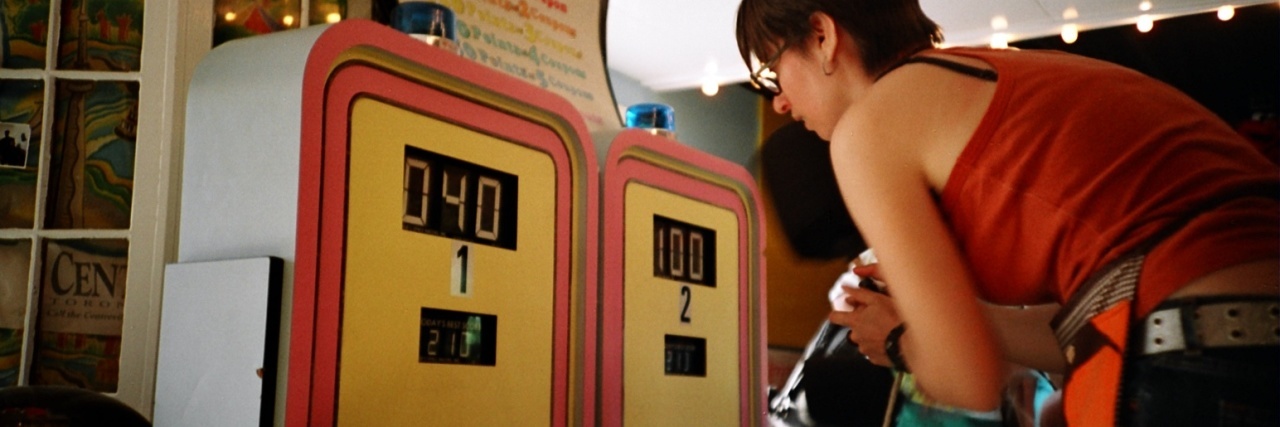Why Eating Disorder Recovery Is Like a Game of ‘Whac-A-Mole’
Editor's Note
If you live with an eating disorder, the following post could be potentially triggering. You can contact the Crisis Text Line by texting “NEDA” to 741741.
If you’re living with an eating disorder, you’ve probably heard that recovery isn’t a straight line. But early in your recovery, when you’re making strides in the right direction, you might be surprised to discover that you can’t always eliminate every single eating disorder behavior at once. As you reduce your most frequent eating disorder behaviors, it can be easy for other behaviors to crop up — and coping with the new behaviors can make you feel like you’re playing a twisted game of “eating disorder Whac-A-Mole.”
I naively went into my first round of eating disorder treatment assuming that it would be easy. I convinced myself that I didn’t engage in most of the eating disorder behaviors I was asked about in my initial assessment, so I’d only have one or two major issues to tackle in my recovery. But as I moved through treatment, I was shocked to discover that as my environment prevented me from using my typical eating disorder behaviors, I was using behaviors I never thought I would. I had never seemed particularly concerned about my weight until midway through treatment. I never wanted to “compensate” for what I ate until my typical unhealthy coping mechanisms were no longer available. And despite all of the lines I swore I’d never cross in my recovery, I wanted to push every boundary I had set to keep myself safe in my recovery.
I was caught in a mind-bending game of “eating disorder Whac-A-Mole,” and it felt deeply disturbing. I was turning into someone I no longer recognized, and because I had so many extra behaviors to account for, I couldn’t seem to build any momentum in my recovery. Every time I made progress, another symptom would crop up, and I needed to pound it down before yet another behavior inevitably replaced it. I was trapped in my eating disorder, and I couldn’t escape.
But then I actively decided to quit one of my behaviors. I went a day without it, then a week, then a month, then six months, and on an especially miraculous day, a full year. I still engaged in behaviors I had yet to “whack down,” but I was progressing in beating that mentally and emotionally draining game of Whac-A-Mole.
I’m not fully recovered, and I’m still trying to “whack down” behaviors, especially when the disordered actions that once made me feel so safe are unavailable to me. But I also know that every meal I successfully eat, every day I decide not to scrutinize my body, and every behavior I choose to resist brings me closer to feeling at peace with food again, and that’s still a significant accomplishment.
If your eating disorder is fighting against you, convincing you to engage in new behaviors or bring old ones into your life, you might feel scared and ashamed, but your experience is so common for people in recovery. It’s OK if you can’t push all your behaviors down at once, and it’s still perfectly fine to celebrate eliminating some behaviors, even if others are popping up. When fighting your eating disorder behaviors turns into a game of Whac-A-Mole, you may feel like you’ll never recover from all of your eating disorder behaviors. But if you remind yourself of the forward steps you have taken and remember that one day, you may be able to stop your most difficult behaviors in their tracks, you’ll make that twisted game feel far less overwhelming. If you’re afraid that your new eating disorder behaviors seem overwhelming to cope with or you notice old “go-to” behaviors coming back into your mind, know that if you take recovery day by day, you can pound those difficult symptoms down — and you aren’t alone in your frustrating game of “recovery Whack-A-Mole.”
Flickr photo via sa_ku_ra under CC BY 2.0

